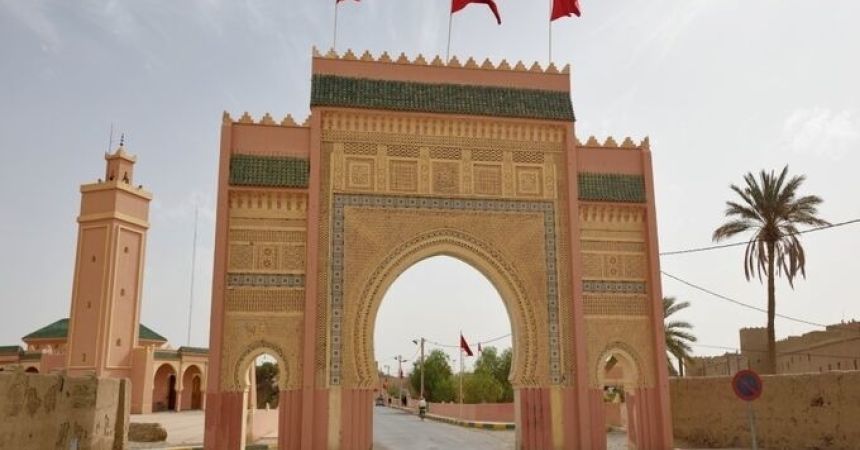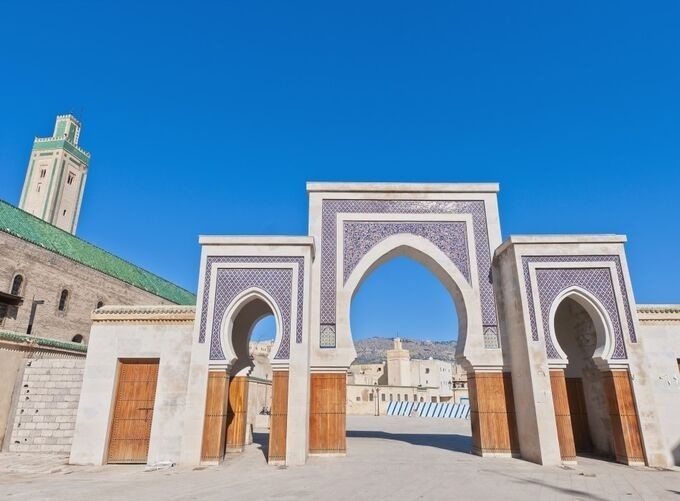
A Guide to Morocco’s Festivals
Morocco, a land of rich cultural heritage and diverse traditions, is known for its vibrant festivals that celebrate the country’s history, music, art, and spirituality. From ancient rituals to modern celebrations, Moroccan festivals offer a unique glimpse into the soul of this North African nation. This guide explores some of the most significant festivals in Morocco, highlighting their cultural importance, activities, and how to experience them.
The Essence of Moroccan Festivals
Cultural Significance
Moroccan festivals are deeply rooted in the country’s history, reflecting the influences of Berber, Arab, and French cultures. They provide an opportunity for communities to come together, celebrate their heritage, and express their cultural identity through music, dance, and traditional customs.
A Diverse Calendar
Morocco hosts a variety of festivals throughout the year, each with its unique charm and focus. Festivals may celebrate religious occasions, agricultural harvests, music, art, or even culinary traditions. Here are some of the most notable festivals that you shouldn’t miss during your visit to Morocco.
-
Important Festivals in Morocco
2.1. Marrakech Popular Arts Festival
When: July
Where: Marrakech
Overview
The Marrakech Popular Arts Festival is a vibrant celebration of Moroccan folk culture, held annually in the heart of Marrakech. This festival showcases a wide range of artistic expressions, including music, dance, theater, and visual arts.
Activities
Performances: Expect to see traditional Moroccan music performances, including gnawa, chaabi, and berber music. Street performers and artists fill the city's squares with lively acts.
Workshops: Attend workshops on traditional crafts, such as pottery, weaving, and calligraphy, allowing visitors to engage with local artisans.
Parades: The festival often features colorful parades showcasing traditional costumes and vibrant floats, creating a festive atmosphere throughout the city.
Tips for Attending
Accommodation: Book your accommodation in advance, as Marrakech attracts many visitors during the festival.
Stay Hydrated: The summer heat can be intense, so carry water and wear light clothing.
2.2. Fes Festival of World Sacred Music
When: June
Where: Fes
Overview
The Fes Festival of World Sacred Music is a celebrated event that brings together artists and musicians from around the globe to promote peace and cultural exchange. The festival aims to highlight the spiritual aspects of music, transcending cultural and religious boundaries.
Activities
Concerts: Enjoy performances from a diverse array of musicians, including local Moroccan artists and international performers. Genres range from classical and spiritual to traditional and contemporary.
Workshops and Discussions: Participate in workshops and discussions on the role of music in fostering intercultural dialogue and understanding.
Cultural Tours: Explore the historical sites of Fes while engaging with local communities and learning about their musical traditions.
Tips for Attending
Plan Ahead: Check the festival schedule and book tickets in advance, as popular performances can sell out quickly.
Explore Fes: Take the time to explore the beautiful medina and its rich history while you’re in Fes.
2.3. Essaouira Gnaoua and World Music Festival
When: June
Where: Essaouira
Overview
The Essaouira Gnaoua and World Music Festival celebrates the rich musical heritage of the Gnaoua people, a group with roots in sub-Saharan Africa and a unique blend of spiritual music. This festival attracts musicians and visitors from all over the world.
Activities
Gnaoua Performances: Experience traditional Gnaoua music, characterized by its rhythmic beats and soulful melodies. The performances often include dancing and call-and-response singing.
International Acts: Enjoy performances by renowned international artists who blend their music with Gnaoua sounds, creating a unique fusion of genres.
Workshops: Participate in workshops on Gnaoua music, drumming, and dance, providing a hands-on experience of this vibrant culture.
Tips for Attending
Accommodation: Book early, as Essaouira can get crowded during the festival.
Explore the City: Take time to explore Essaouira’s charming medina, beach, and local cuisine during your visit.
2.4. Mawazine Festival
When: May to June
Where: Rabat
Overview
Mawazine is one of the largest music festivals in Morocco, attracting top international and local artists. It aims to promote the cultural diversity of Morocco through music.
Activities
Concerts: Enjoy performances from a wide range of genres, including pop, jazz, rock, and traditional Moroccan music. The festival features both local talent and international stars.
Cultural Activities: Alongside the music, Mawazine includes art exhibitions, workshops, and cultural events that highlight Moroccan traditions and customs.
Free Concerts: Many performances are free to attend, making it accessible to a broad audience.
Tips for Attending
Check the Lineup: Keep an eye on the festival schedule for artist lineups and performance times.
Explore Rabat: Take some time to explore the capital city and its historical sites, such as the Royal Palace and Hassan Tower.
2.5. Aid al-Fitr and Aid al-Adha
Overview
These two major Islamic festivals are celebrated throughout Morocco, marking important religious events. Aid al-Fitr marks the end of Ramadan, while Aid al-Adha commemorates the willingness of Ibrahim (Abraham) to sacrifice his son in obedience to God.
Activities
Community Gatherings: Both festivals involve communal prayers, feasting, and family gatherings. Families often prepare special meals to share with loved ones and the less fortunate.
Traditional Foods: Enjoy festive meals that include traditional Moroccan dishes, such as tagine, couscous, and sweet pastries.
Charity: Aid al-Adha involves the ritual sacrifice of sheep, and the meat is often distributed among family, friends, and those in need.
Tips for Attending
Be Respectful: If you’re visiting during these festivals, be mindful of the religious practices and customs.
Participate: Engage with local communities and experience the warmth of Moroccan hospitality during the celebrations.

-
Regional Festivals and Local Celebrations
3.1. The Almond Blossom Festival
When: February
Where: Tafraout
Overview
The Almond Blossom Festival celebrates the blooming of almond trees in the Tafraout region. This picturesque festival showcases the region's stunning landscapes and agricultural heritage.
Activities
Cultural Performances: Enjoy traditional music and dance performances celebrating Berber culture.
Artisan Markets: Browse local artisan markets featuring handmade crafts and traditional goods.
Nature Walks: Participate in guided walks to enjoy the stunning landscapes filled with blooming almond trees.
3.2. The Cherry Festival
When: June
Where: Sefrou
Overview
The Cherry Festival in Sefrou celebrates the cherry harvest, showcasing the region’s agricultural significance and vibrant community spirit.
Activities
Cherry Picking: Join in cherry-picking activities and enjoy the fresh fruit.
Parades and Music: The festival features parades, traditional music performances, and cultural events, creating a lively atmosphere.
Culinary Delights: Taste cherry-based dishes and desserts, highlighting the region's delicious produce.
-
Planning Your Visit to Morocco
Best Time to Visit Morocco
The best time to visit Morocco for its festivals is during the spring (March to May) and fall (September to November) when the weather is pleasant and numerous festivals take place. Summer can be hot, especially in the desert regions, while winter can bring colder temperatures in the mountains.
Getting There
Morocco is well-connected by international flights to major cities such as Casablanca, Marrakech, and Fes. From there, you can use domestic flights, trains, or buses to reach festival locations.
Local Transportation
Public Transport: Morocco has a reliable network of buses and trains, making it easy to travel between cities.
Taxis: Local taxis are available in cities, and it’s advisable to agree on a fare before starting your journey.
Car Rentals: Renting a car can provide greater flexibility for exploring rural areas and festival locations.
Cultural Etiquette
Dress Modestly: Morocco is a predominantly Muslim country, so it’s essential to dress modestly, especially when attending religious festivals.
Respect Local Customs: Be mindful of local customs and traditions, especially during religious celebrations.
-
Culinary Highlights During Festivals
Traditional Moroccan Cuisine
Moroccan cuisine plays a significant role in festivals, with an emphasis on sharing and communal dining. Here are some must-try dishes:
Tagine: Slow-cooked stews made with meat, vegetables, and spices, served in a traditional clay pot.
Couscous: A staple dish made from steamed semolina, often served with meat and vegetables.
Pastilla: A savory-sweet pastry made with layers of filo dough, filled with pigeon or chicken, nuts, and spices.
Mint Tea: The national drink of Morocco, traditionally served to guests as a symbol of hospitality.
Street Food
During festivals, street food vendors offer a variety of delicious snacks. Be sure to try:
Briouats: Savory pastries filled with meat or cheese.
Kebabs: Grilled meat skewers seasoned with Moroccan spices.
Sfenj: Moroccan doughnuts that are crispy on the outside and soft on the inside.
Experience the Vibrancy of Moroccan Festivals
Moroccan festivals are a celebration of culture, music, and tradition, offering visitors a unique glimpse into the country’s rich heritage. From the vibrant streets of Marrakech to the serene landscapes of the High Atlas, each festival is an opportunity to engage with local communities, savor delicious food, and experience the warmth of Moroccan hospitality.



